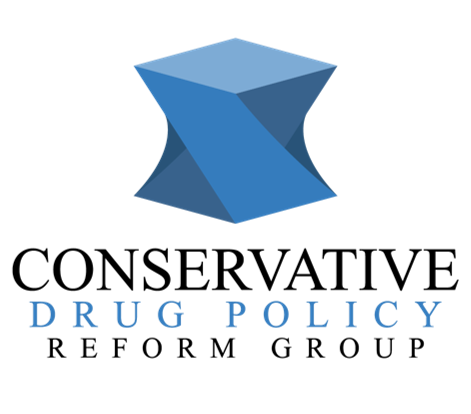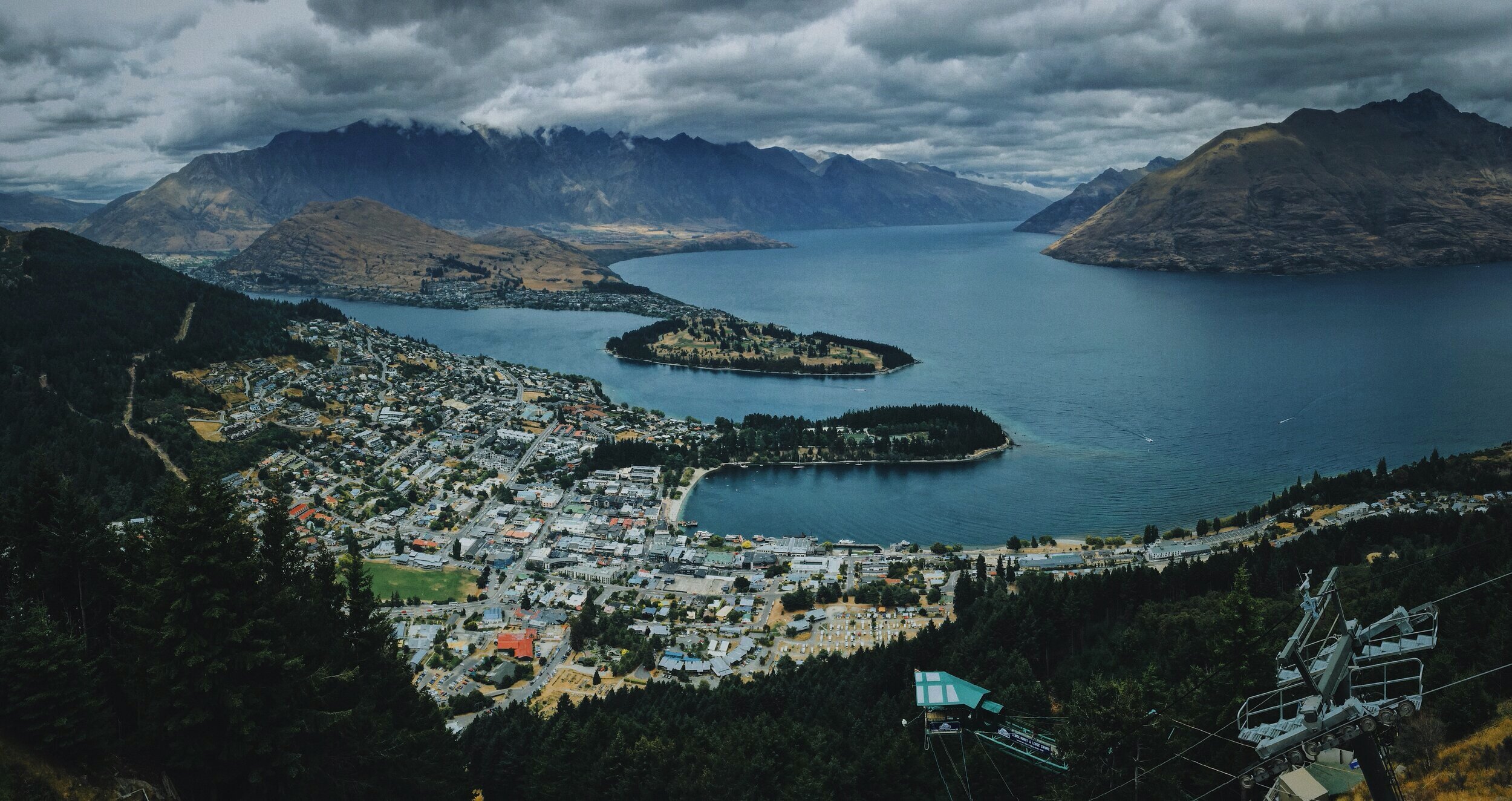There is just one day left for New Zealanders to vote on whether the recreational use of cannabis should become legal, based on the proposed Cannabis Legalisation and Control Bill. Although results are not expected to be announced for a few weeks, recent polling suggests the outcome is on a knife-edge. UMR, who have a good track record based on recent election results in the country found that 49 per cent support the legislation, while 45 per cent oppose it. When those who responded "unsure" were asked which way they were leaning, a further 2 per cent leaned in favour of voting for legalising recreational use of cannabis.

Queenstown, NZ. Photo by Jeff Finley on Unsplash
Attitudes to the legalisation of cannabis use in the UK
Last year, the Conservative Drug Policy Reform Group’s (CDPRG) commissioned an extensive YouGov survey of contemporary British attitudes towards UK drug policy, which found that 48 per cent of the British Public supported government legalisation of cannabis (without the provision of any legislative details). Only 24 per cent were opposed. Our current law uses a ‘prohibition’ approach to cannabis and all controlled drugs. The threat of arrest or conviction is intended to put people off from using drugs and prevent access to them through restricting supply. In reality, however, that approach isn’t stopping people from using drugs despite decades of investment, which was also exemplified by our 2019 polling results which found that 31 per cent of the British Public have tried cannabis. Even a Home Office report which looked at the different legal frameworks of 14 different countries, concluded that there was no “obvious relationship between the toughness of a country’s law enforcement against drug possession and levels of drug use in that country”. Aggressive law enforcement strategies not only fail to curb use or supply of controlled drugs but they also have many counterproductive effects, such as drug market violence, damaging the mental and physical health of people who use drugs, they discriminate against Black, Asian and Minority Ethnic (BAME) communities, and result in mass incarceration and the arrest of otherwise lawful citizens. A prohibitionist approach also tends to block and deprioritise other health-focused initiatives.
New Zealand’s existing approach
In New Zealand, the extent to which the law around cannabis was enforced has been progressively softening over the past decade, culminating in last year’s Misuse of Drugs Act amendment affirming police discretion to take a health-oriented approach rather than prosecuting people who use cannabis, which has been referred to as ‘soft decriminalisation’. However, police discretion is not necessarily applied equally or fairly, so discriminatory policing and justice outcomes have persisted despite the law change, which has continued to disproportionately affect Māori (the indigenous people of New Zealand), young men and people from lower socioeconomic backgrounds. Decriminalisation policies (which vary by country) also keep cannabis production and supply in the hands of illegal operations. This means those who use cannabis need to access it from unlawful sources. There are therefore no regulatory controls over factors such as the type, strength and quality of cannabis products, who can purchase it, how much an individual can buy, and who can produce it or under what conditions.
Legal regulation: an alternative approach?
Legal Regulation of the production, supply and use of cannabis, like that proposed in the New Zealand Bill, is an alternative approach which has already been implemented in eleven US states, Canada and Uruguay and up for serious debate across a number of other nations. In theory, legal regulation has the potential to undercut the illegal market for cannabis, help reduce cannabis-related harm through regulated product safety, better facilitate intervention and treatment services, and separate access to cannabis from the illegal market and more harmful drugs. As noted by the expert panel of the Office of the Prime Minister's Chief Science Advisor (PMCSA) in New Zealand, to what extent this plays out, in reality, is still yet to be determined. This is because legalisation reforms in other places have not been in place for long enough to draw firm conclusions of the long-term impacts on public health, public safety, youth and social outcomes. The data that is available, positive or negative, also needs to be interpreted with caution as a simplistic look at the data can lead to incorrect conclusions.
A systematic review of studies evaluating the effects of de jure drug decriminalisation and legal regulation on drug availability, use of related health and social harms globally found that the metrics often used to evaluate drug law reform also tend to have a very narrow focus, on the prevalence of use in particular, despite its limited clinical significance (e.g. much cannabis use is non-problematic). For instance, improving the physical and mental health of people who (already) use drugs is a motivation for drug policy reform but no included studies examined mental or physical health outcomes (aside from substance use disorders) in this population. However, the results available do indicate that legal reform of cannabis does not increase use among young people, with indications that there may be some increases among adults. The review, published in the British Medical Journal, concludes that Metrics used in drug law reform evaluations require improved alignment with relevant health and social outcomes.
Legalising cannabis use: Lessons learned from other countries
Despite the acknowledged limitations on the extant literature surrounding legal regulation of cannabis, the Prime Minister’s Chief Science Advisor, Professor Juliet Gerrard, said the evidence available does indicate, on balance, that legalisation will make it easier to get help with use problems and also make research easier to conduct. The panel also found a consensus in the view that cannabis is less harmful overall than the two currently legal social drugs, alcohol and tobacco. One of the cases made for drug law reform is the argument that prohibiting cannabis restricts personal freedoms in a way that is inconsistent with our ability to choose to drink alcohol or smoke tobacco, and there are certainly further human rights arguments that can be made when the consequences of actions taken to consume cannabis are punitive. Nevertheless, there are important lessons to learn regarding what not to do from the ways in which alcohol and tobacco have been regulated, not that these lessons are necessarily applied. In the US, where cannabis remains prohibited under federal law, most states have applied a very liberal, highly commercialised approach to cannabis legalisation (similar to alcohol) with privately run retail stores and advertising allowed. Cannabis can be purchased in unlimited strengths and forms which has stimulated innovation in products, including highly potent products and different ways to consume these.
A prominent UK researcher and professor at the Institute of Psychiatry at King’s College London, Sir Robin Murray, changed his mind on legalisation of cannabis after witnessing how things have panned out overseas, “I didn’t appreciate how big the cannabis industry was going to be. These guys in Canada and California, they are setting out that the cannabis industry will be as big as the tobacco industry. And of course, they can’t be trusted”. Murray’s chief concern is the impact of cannabis use on mental health, and mental health services. As we previously saw, studies are not properly examining mental or physical health outcomes, although there will be a considerable delay between the law changing and its wider implications.
What’s the proposed model for legalisation in New Zealand?
The impact of legal regulation of cannabis very much depends on the specific regulations and how these are implemented and enforced. For example, Uruguay has a model of strict government-controlled supply of cannabis, worlds apart from the liberal, commercialised markets for cannabis seen in some US states. Canada’s system of legal supply is a hybrid of these two systems, with a commercial cannabis industry and limited retail and use provisions. The specific regulatory framework in the New Zealand draft bill is therefore a critical consideration in deciding which way to vote in the referendum. The Office of the Prime Minister's Chief Science Advisor (PMCSA) provides an very brief overview of the proposal:
A person aged 20 or over would be able to:
buy up to 14 grams of dried cannabis (or its equivalent) per day, but only from businesses with a licence to sell cannabis
enter licensed premises where cannabis is sold or consumed, but not smoke or vape inside (and alcohol and tobacco cannot also be sold there)
consume cannabis on private property or at a licensed premise, but not in public
grow up to two plants, with a maximum of four plants per household, but out of sight or not accessible by the public
share up to 14 grams of dried cannabis (or its equivalent) with another person aged 20 or over, but it would be illegal to supply cannabis to anyone under 20.
Any cannabis for sale through a licensed vendor would:
have been through an approval process that controls the potency (strength), quality and contents of the cannabis
be an approved product type (e.g. dried cannabis) and not a prohibited type (e.g. those that appeal to children such as gummy bear edibles)
come in plain packaging with health warnings and details of how the product compares to the daily purchase limit
be taxed, with a higher rate for more potent cannabis, and levied to fund services to reduce cannabis harm
only be available in locations and during opening hours that are established in consultation with the local community

Photo by Priscilla Du Preez on Unsplash
What can we expect if the majority vote ‘yes’?
Further details from the Bill outline its purpose and approach to ‘reduce harm to people and communities’ through eliminating the illegal supply of cannabis, raising awareness of the health risks associated with cannabis use, restricting young people's access, improving access to health and social services, and by making sure the response to any breach of the law is fair. The Bill also includes proposed ways to decrease rather than increase social disparities through community involvement, input and employment in the cannabis industry, particularly for Māori and economically deprived communities, an enhancement that may well have been based on learnings from some US state approaches.
Synthetic cannabis products — which are often mistakenly conflated in discourse on cannabis law with natural cannabis products, despite having a vastly different molecular make-up, safety profile and range of effects — would remain illegal. Laws pertaining to cannabis medicines would not be affected where different laws and different regulatory frameworks apply. If the majority vote ‘yes’, the Bill will still need to go through parliament and the public would have an opportunity to provide input on the details so some of the details could change before the regulation is implemented.
Compared to the majority of US states (where recreational cannabis has been legalised), New Zealand’s proposed law has stronger regulations for the production and sale of cannabis. Being a national law, like Canada and Uruguay, the law will result in greater uniformity in regulation than what is seen across states in the US. Advertising will also not be allowed and there will be limits on THC potency, which have only recently been applied to edibles in the US states with legal cannabis. As noted by New Zealand's PMCSA, the impacts that would be seen in New Zealand will not be determined by whether cannabis is legalised, but by the specific details included in the regulation itself.
There is no silver bullet solution to preventing the risk of harms associated with drug use, but legal regulation with rigorous and transparent debate on how the policy is developed, applied, enforced, and evolves based on thorough evidence collection presents opportunities which the status quo cannot hope to tackle. If the Cannabis Legalisation and Control Bill does make it to implementation in New Zealand and is able to improve the way data is collected and analysed for the purpose of monitoring the impact of the reform, this could lead to much more conclusive evaluation outcomes.
Implications of a “no” vote and maintaining the status quo
Maintaining the status quo means a continuation of the life-long collateral consequences of a drug arrest or conviction which have detrimental social outcomes on individuals, disproportionately affecting young people, people from lower socioeconomic backgrounds and BAME communities, or specifically Māori communities in the case of New Zealand. Individuals with chronic health conditions who might be eligible for a legal prescription of a cannabis-based medicine through a private clinic but cannot afford the exorbitant cost and who decided to self-manage with unlawfully obtained cannabis are also caught up in this. Our recent UK review of medical cannabis, titled ‘The Needs of a Nation’ details the UK situation. A legally regulated cannabis market would mean cannabis would be legally available without medical advice (as per the United States and Canada) which could, in turn, result in an increase of people self-treating with cannabis products (which carries risks, regardless of the substance in question). However, it would also mean that those individuals would no longer be criminalised (so long as this was conducted within the parameters of the new legal framework e.g. no more than 14 grams in possession or 2 plants so long as not in public view) and this would better permit patients to discuss this use with a doctor. It should also be observed that there is a marked difference between cannabis products that might be available for a recreational market, versus those produced for medical use and those which can make legitimate medical claims which are also provided under the observation of a healthcare professional.
If the New Zealand referendum receives a majority no vote, then those who use cannabis will continue to get it from illegal sources, whether it’s from the illicit market, a cannabis social club or through self-cultivation. Illicit markets have led to increasingly potent products where the production and supply remains in the hands of organised crime groups and where young people can easily gain access. Young people often have an easier time accessing cannabis than alcohol where ID is required to either purchase alcohol or consume it within licensed premises. It also means continuing to spend on strategies that don't cost-effectively benefit the public, instead of redirecting those resources to better educate the young, to minimise the harms of drug use, and to treat those in need. Our 2019 UK polling clearly showed that this is a sentiment felt by the British public where 70 per cent said that current UK drugs policy has been unsuccessful at reducing the harm done by drug abuse and more than half (55 per cent) supported an alternative stance on cannabis (either decriminalisation or legal regulation).
If the New Zealand bill does not receive a popular vote, different outcomes could arise from the progressive softening of the law, following the alteration to the Misuse of Drugs Act last year, which at least reoriented policy toward public health and away from criminal justice.
Helen Clark, former Prime Minister of New Zealand, Former Administrator of the United Nations Development Programme and chair of the United Nations Development Group, who spoke to DrugScience ahead of the referendum on the braedth of advantages the policy change would bring. Kathy Errington, the executive director of the Helen Clark Foundation said:
We hope that whatever the result, that New Zealand moves away from an approach to drug policy that's rooted in criminal law and prohibition. Our cannabis laws have done so much harm to so many people for so many years we do hope they change, and we hope that happens no matter what.
Speaking to the CDPRG, Former NZ Prime Minister Helen Clark said:
Cannabis is widely used in New Zealand. It is estimated that up to eighty per cent of New Zealanders will try it in their lifetime. A yes vote will ensure that the risk of criminal conviction for use, possession, and supply is removed, and that cannabis comes under effective regulation with approved products available through specialist licensed vendors. The benefits to the public purse will be considerable, both through taxation collected from legal activities, and by not wasting money on futile attempts to stamp out production, use, and sale.
Medicinal cannabis was already lawful, but most doctors won't prescribe it and it is expensive. Thus, many seeking the relief which a cannabis product can give will be able to buy over the counter products rather as people do from pharmacies today for a range of ailments. The proposed law also provides for a health levy on cannabis sales which can be applied to health services.
Words: Amber Moore, Senior Researcher at the CDPRG
Former Prime Minister Helen Clark - New Zealand 2020 Cannabis Referendum | DrugScience, 12/10/2020
For more on the current landscape of medicinal cannabis in the UK, see our report, The UK Review of Medicinal Cannabis: Part A (The Needs of A Nation) (April 2020).
Part B: The Road Ahead, is currently in production.

